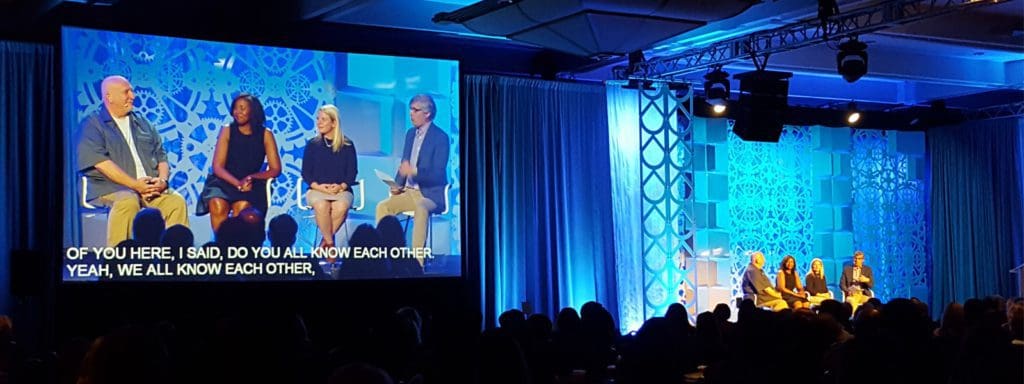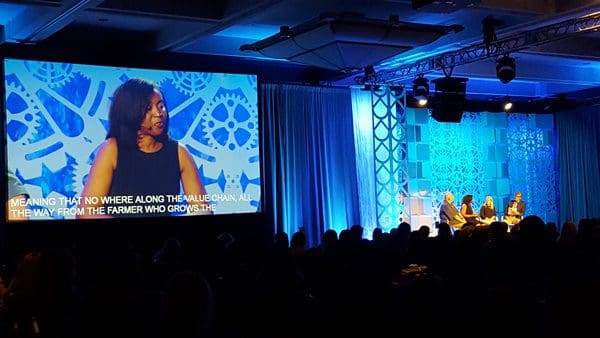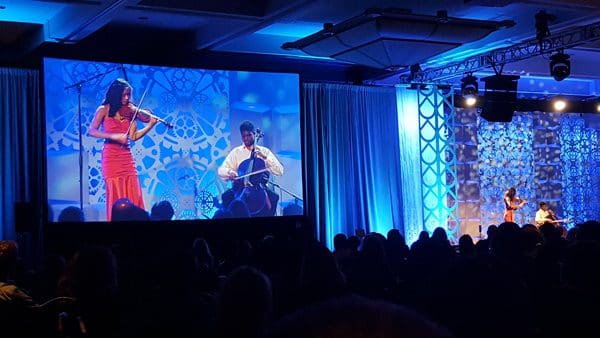Our Common Future’s opening session was an injection of hope and inspiration, while grounded in reality here in Detroit. The American Indian Health Family Services blessed around 1,400 social impact-focused guests, with a nod to the historic land we gathered upon. W.K. Kellogg Foundation CEO La June Montgomery reminded us to both take time to heal as well as celebrate Detroit’s brand of “innovation and creativity, both for the nation and the world.”
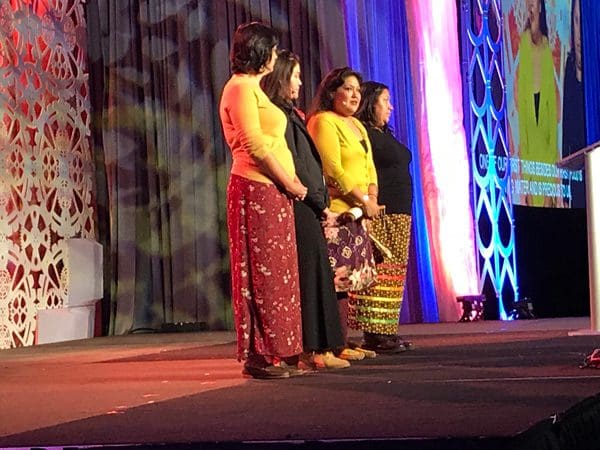
The Henry Ford CEO Patricia Mooradian exemplifies that style as she extended an enthusiastic welcome to “the D.” Playworks CEO Jill Vialet demonstrated that although as “grown-ups” we may not have all the answers, even simple activities like moving up and down will positively shift your mind and body. “The opposite of play is not work,” she says, “rather, it’s depression.”
The room’s energy peaked as journalist and comedian Mo Rocca moderated a panel of distinguished Detroit innovators in social impact. Amy Peterson founded Rebell Nell, employing women transitioning out of homelessness through creating jewelry-from-graffiti and a whole-employee and family support approach. Devita Davison runs FoodLab Detroit that empowers and equips many of the 189 local food entrepreneurs across the neighborhoods of Detroit. Finally, Gary Wozniak now runs RecoveryPark that creates jobs through a series of for-profit ventures for those with severe barriers to employment.
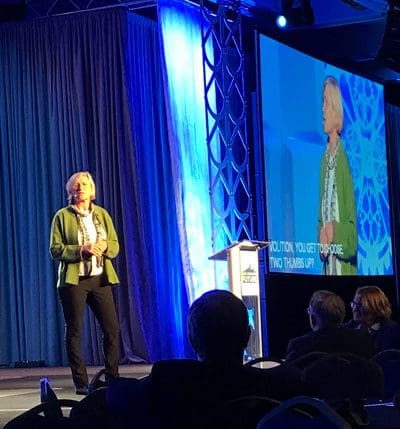
Having attended similar conferences previously, I anticipated that this group would set a new standard with the passion and practical know-how that distinguishes our region. Working with these deeply committed residents over the years, I was excited for them to share their thoughtful, action-based approach to lifting communities. They did not disappoint!
Devita immediately set the stage that working with food goes much beyond food alone; it’s intersectional, justice-oriented, and requires movement building. Considering the root effects of poverty at every junction and utilizing a listening orientation are must-haves in this work.
Gary is running his Nth business after returning from incarceration in 1991 and never looked back. His program pays $18/hour with full benefits to individuals that – like him earlier – are routinely refused a shot at employment.
Amy sees challenges in mobility and access around Detroit, and that the way forward is to be inclusive, determined, and compassionate. Devita wants a future with a city that loves children, but she’s not convinced that we’re there today. Gary believes the quality of life for all should be high, but lack of capital for neighborhood projects is holding us back.
Mo Rocca pushed on the differences between social innovation and social entrepreneurship as well as pursuing a nonprofit versus a mission-driven business. The varied responses reminded me of the continued efforts to define a common language, form understandings, and prove models to best deliver social impact in our communities.
The dynamic afternoon finished with a performance from Sphnix Organization alumni, who uphold the transformative power of diversity in the arts. Sphinx President Afa Sadykhly Dworkin noted that the danger of having a single story is not that it is false, but that it is incomplete. One of many great lessons as we launch Our Common Future!
Rishi Moudgil is the founding executive director at GreenLight Fund Detroit.
